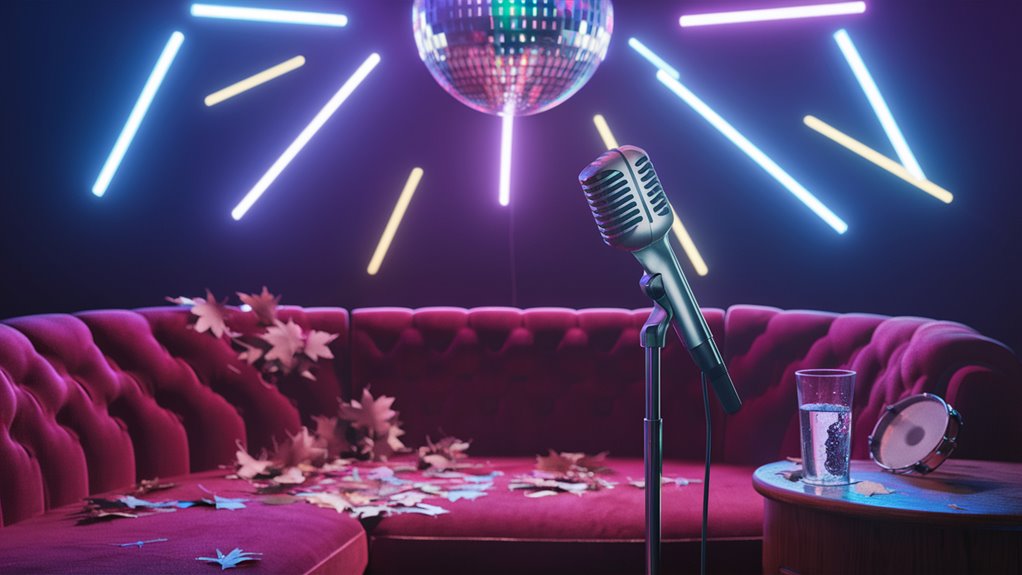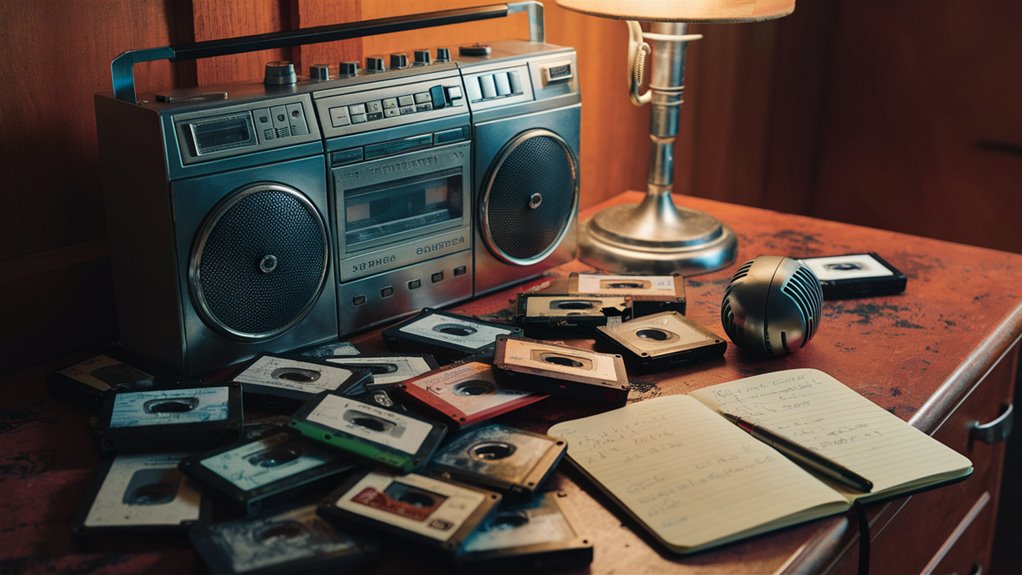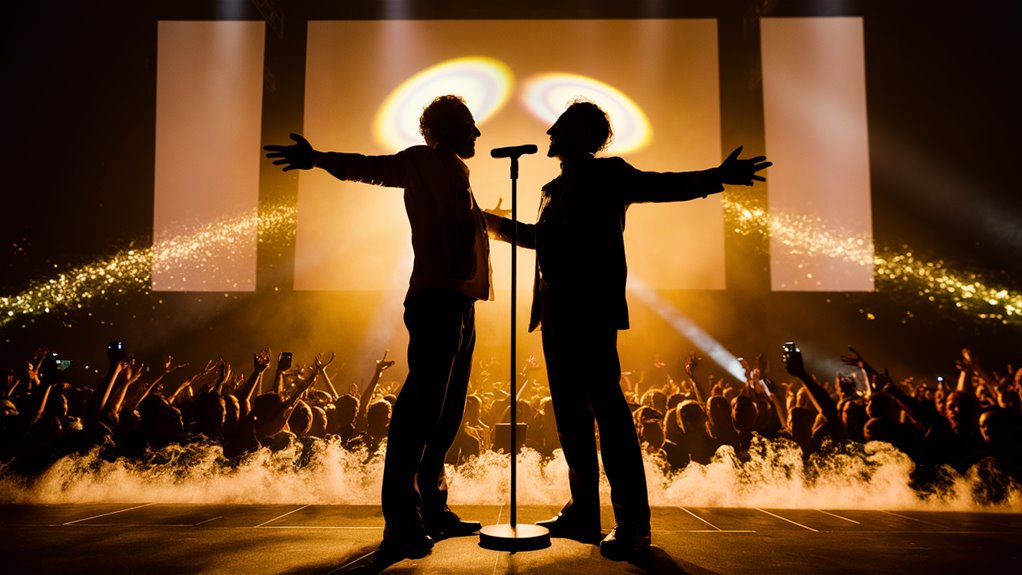Top Solo Songs for Late Night
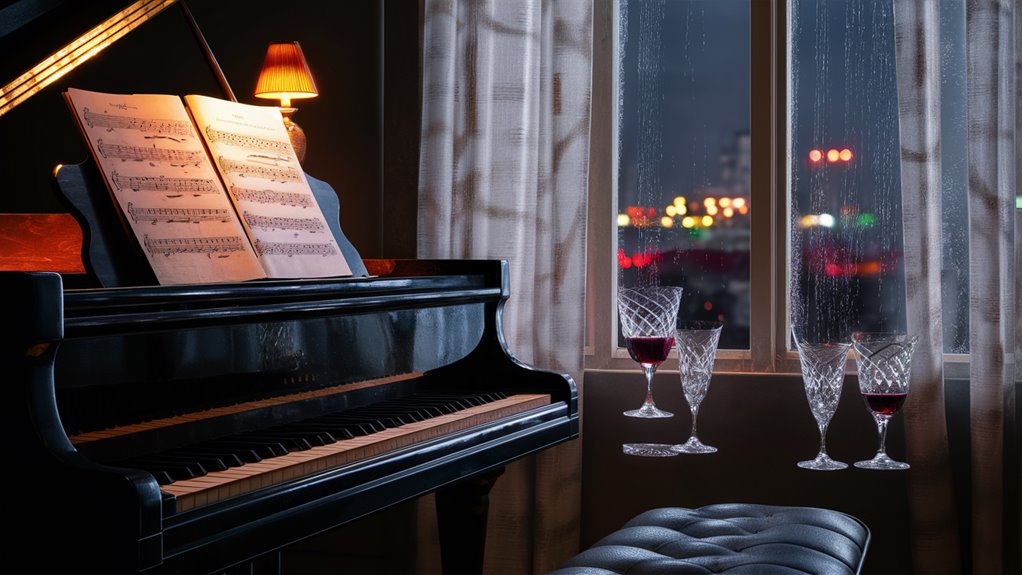
Making the Best Late-Night Mood
Playing songs alone at night needs the right mix of skill and deep feeling. The best songs for these quiet hours have simple setups and good voice control, using ideas from famous ones like Nick Drake and Vashti Bunyan.
Key Parts for Good Recording
For the top late-night records between 10 PM and 2 AM, look at:
- Soft sound levels
- Room’s natural sound
- Small reverb (under 30%)
- 호치민 퍼블릭가라오케 미리보기
- Planned quiet spaces
Must-Have Music Bits
The main parts that make great late-night solo songs are:
- Close-up singing
- Different guitar sounds
- Small sound changes
- Bare setups
Better Ways to Play
Pro artists like Karen Dalton and Michael Hedges show you how to lift up late-night plays by:
- New phrases
- Guitar ways using both hands
- True raw feelings
- Simple setup ideas
These tech and art bits mix to make the best sound world in quiet times when ideas flow and walls come down.
The Story of Acoustic Guitar
Learning the Art of Solo Acoustic Guitar
Needed Moves for Top Players
Solo acoustic guitar needs great tech skill and deep music know-how. The best solo works mix top finger moves with deep harmony, making broad sounds that show off the guitar’s full use.
Big Moments in Solo Guitar
John Fahey’s “Sunflower River Blues” is a top example of different tune setups and smart hand work.
Nick Drake’s “Pink Moon” is all about smart chord use and sharp string control, while Michael Hedges’ “Aerial Boundaries” started new hit methods and hand taps.
New Guitar Moves
Leo Kottke’s “Vaseline Machine Gun” shows off big thumb basslines and quick runs, setting marks for skill.
Future moves go on with Andy McKee’s “Drifting,” with new neck grips and ringing sounds. These works are full music plans that use all parts of the guitar’s sound and power range.
New Guitar Tricks
- Finger moves
- Hit ways
- Hand taps
- New tunes
- Together sounds
- Sound control
- String stops
- Neck holds
Piano Songs at Night
Piano Songs After Dark: A Full Guide
The Wonder of Night Piano Works
Solo piano songs make a magic air in night times through their mix of long notes, smart pedal use, and true sound. The piano’s big skill for deep tunes and light sound moves makes it the best tool for night music trips.
Key Bits of Late-Night Piano Play
The skill in night piano works is in the light mix of tune talk and chord base. Jazz ways, mainly ninth and thirteenth chords, make dreamy feels needed for night plays. Good late-night piano songs add:
- Free timing for deep talk
- Good use of quiet
- Rich chord moves
- Kept sound moves
Better Moves for Mood Piano Play
Big octave setups let deep feelings out well in low light spots. Key parts cover:
- Low sound warmth
- Open high sound bits
- Pedal twists
- Touch-sensitive moves
- Wide sounds catching natural rings
These moves make the known sound of air piano works, perfect for night plays and close listens show-stopping
Simple Electric Sound Worlds
Making Big Simple Electric Sound Worlds
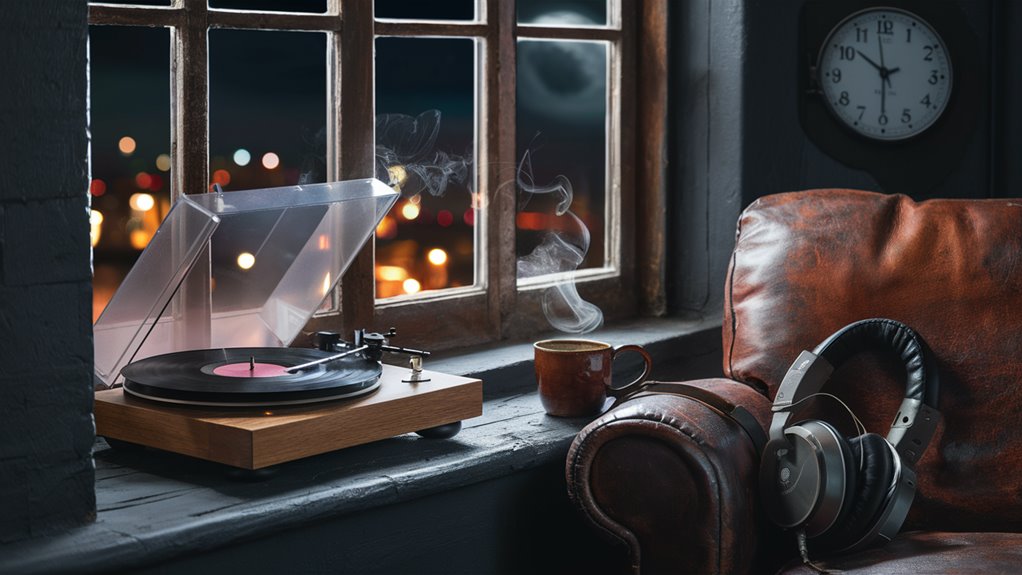
Main Parts of Simple Sound Making
Simple electric sound worlds come from careful setup of few synth bits, long drone sounds, and smart move ways. The most hit works in this type hit their mark through slow sound change not fast sound jumps, letting each part grow on its own in the sound room.
Key Making Moves
The start of any hit simple electric work starts with a base drone, often made from an analog synth with smart filter setups. Field sounds changed through granular making add deep feel while keeping key space in the mix. Smart holding back in setup makes sure every sound bit adds right to the air whole.
New Sound Change Ways
Small move ways, like light changes in filter cut and right tone moves, make deep hit inside simple setups.
Room moves through smart reverb end and delay talk make deep sound spots while keeping mix clear. This careful mix between sound feel and open space makes the calm traits key to hit simple electric music.
Main Making Parts:
- Analog making
- Drone levels
- Granular changes
- Room moves
- Move control
Raw Voice and Feelings
Raw Voice and Feel: The Power of Real Show
Main Parts of Raw Voice Show
Raw voice shows get their deep hit through three main loves: real sing, tone mistakes, and sound changes. These true bits make a close sound link that smooth work just can’t copy, mainly during solo listen times.
Top Raw Voice Shows
Jeff Buckley’s “Hallelujah” is a top show in voice open, with planned breaks and high parts that show true deep feeling.
Nina Simone’s “Wild Is the Wind” shows how top control of real shake and breath ways can give deep feeling talk.
Cat Power’s “Metal Heart” shows how small tone slips add to, not cut from, real talk.
Tech “Mistakes” and Deep Feeling
The power of these plays is in their tech rawness. Natural voice bits cover:
- Mic near effects
- Light tone changes
- Real breath ways
- Pushing range bits
Top cases cover Thom Yorke’s lost tell in “True Love Waits” and Bon Iver’s bare feeling in “Skinny Love.” These real voice shows make a deep feel world that mainly hits right during close night listen times.
Hidden Music Alone
Hidden Music Alone: Finding Close Music Big Works
Not Known Solo Play Finds
Three great solo plays stay hidden from big see, each with big art deep and deep feel power. Nick Drake’s “From the Morning” shows top finger move work, making a full tune work that fits well with his close sing. The song’s special BEBEBE tune makes a pull sound one-of-a-kind in new folk music.
Raw Deep Feeling
Karen Dalton’s “Something on Your Mind” stands as a key time in folk music past. Out in 1971, this big solo record shows her known shake and new phrase ways. Her planned tone move ways lift this folk song into a deep moving show of human feeling, making new marks for real music show.
Close Sound Worlds
Vashti Bunyan’s “Diamond Day” is the top of simple folk skill. Her light voice show, given just above soft tell, shows great hold over small sound moves. The bare guitar setup lifts the song’s close air, while her smart sound move work makes a very own listen feel. This top use of sound moves makes a straight feel link between artist and hearer, showing the power of small music talk.
